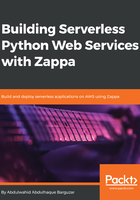
What is Flask?
Flask is a well-known Python micro web framework in the Python community. It's adopted and preferable because of its extensible nature. Flask aims to keep the code simple but extensible.
By default, Flask does not include any database abstraction layer, form validation, or any other specific functionality. Instead, Flask supports extensions to add any well-defined functionality to your application. Numerous extensions are available to provide database integration, form validation, file upload handling, authentication, and more. The Flask core team reviews extensions and ensures that they won't break the future release.
Flask allows you to define the design as per your application needs. You are not bound to follow some strict rule by Flask. You can write your application code in a single file or in a modular manner. Flask supports built-in development servers and fast debuggers, unit testing, RESTful request dispatching, Jinja2 templating, and secure cookies (for client-side sessions), all of which are WSGI 1.0-compliant and Unicode-based.
That's why many in the Python community prefer to use the Flask framework as their first choice. Let's make headway and explore the Flask-based application development process with actual implemention along with a serverless approach.